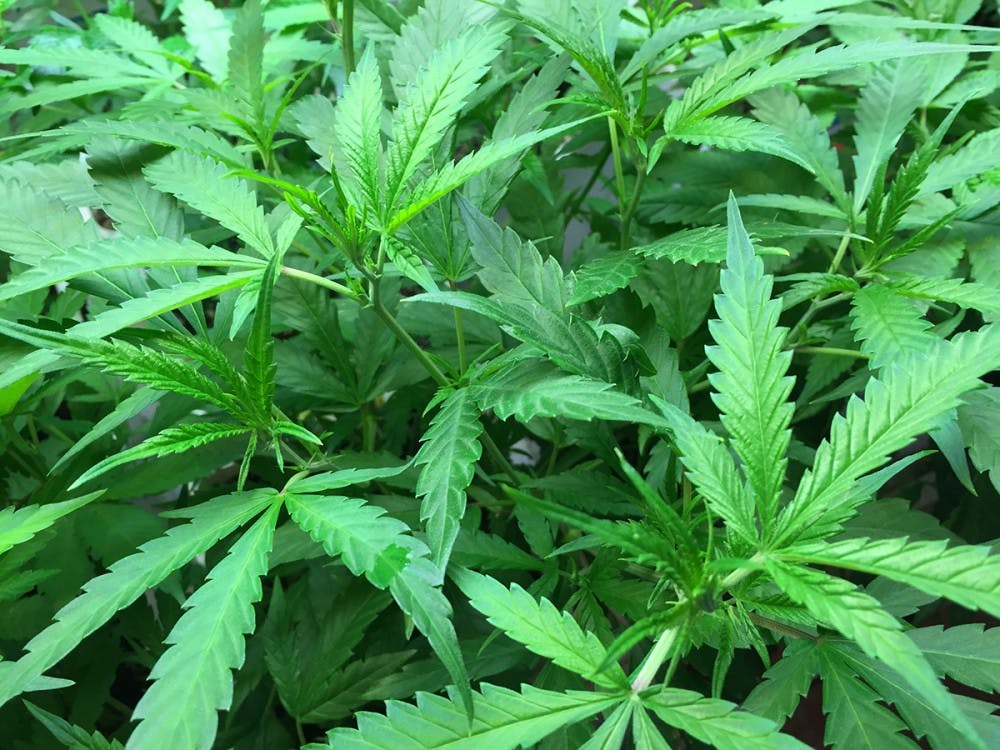Since trends towards decriminalizing the possession of marijuana and legalizing its use for recreational purposes have gained traction in the United States, Virginia lawmakers have considered whether or not to change Virginia’s laws governing the use of marijuana. Democratic gubernatorial nominee and current Lt. Governor Ralph Northam has voiced his support for decriminalizing the possession of small amounts of marijuana, while the Virginia State Crime Commission is currently sponsoring studies gauging the effectiveness of such a change to the Commonwealth’s laws. Even though other states have decided to legalize the recreational use of marijuana, Virginia should maintain its current laws criminalizing the possession, consumption and trafficking of cannabis. The costs of legalizing marijuana simply do not compensate for the benefits legalization might bring.
Proponents of marijuana legalization argue that taxing legal marijuana sales would boost government revenue. According to a study conducted by the Tax Foundation, “Marijuana tax collections in Colorado and Washington have exceeded initial estimates, and a nationwide legalization-and-tax regime could see states raise billions of dollars per year in marijuana tax revenue.” Proponents of marijuana legalization also argue that it should be the choice of adults to consume marijuana or not, and that criminalizing the possession and consumption of marijuana infringes upon personal freedoms. The Drug Policy Institute even uses the words of John Stuart Mill — one of the fathers of individualism — to defend its support of legalization. However, these points fail to address the complex nature of legalization and don’t prove that the benefits to society legalization would bring would outweigh the costs.
When considering the effects of legalization, it is easy to only look at the qualitative benefits. However, the quantitative arguments against legalization present a stronger case, even if it requires more than a cursory glance to appreciate the costs legalization would bring. Opponents often call these costs societal costs. It’s fruitful to examine the costs associated with another, widely available and legal drug — alcohol. The $8 billion in tax revenue generated from alcohol does little to offset the nearly $200 billion in social costs attributed to its use.
Marijuana’s societal costs take many forms, but many of them come from medical costs associated with marijuana consumption and the negative effects marijuana has on its users. According to Thomas Strouse, M.D., “Heavy recreational use of cannabinoids can adversely affect the brains of young people … Related to the continuing development of brain structures and functions.” He argues that legalized use of marijuana — even if restricted to those of age — will inevitably lead to greater accessibility to those under age, as we have seen with alcohol and tobacco products. He also states that “chronic marijuana use is connected with what, in popular culture, has been called slacker behavior – increased risk of dropping out of school, lower achievement, diminished IQ and probably lower life satisfaction – not to mention addiction, physical dependence and withdrawal symptoms.”
Unfortunately, our culture has adopted a more relaxed view of marijuana use. Proponents of legalization argue that other drugs like alcohol and tobacco present greater societal costs even though the possession and consumption of those substances is legal for those of age. It’s true that the health costs from alcohol and tobacco use pose a burden to our society. Given that, why would we then legalize yet another substance which will pose even more drug-related costs? According to the Drug Abuse Warning Network, marijuana contributed towards 455,668 emergency department visits in 2011.
When considering whether to legalize marijuana or not, we must weigh the benefits of drawbacks legalization would bring. While physicians often argue that the medicinal use of marijuana presents significant benefits to patients, arguments in favor of recreational use fail to outweigh the negative aspects of legalization. Instead of ignoring the arguments against legalization because they are currently unpopular, we must consider the heavy costs when altering Virginia’s current laws governing marijuana use.
Tom Ferguson is a Viewpoint writer for The Cavalier Daily. He can be reached at opinion@cavalierdaily.com.







